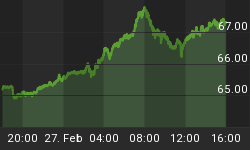Spain's National Statistics Institute said Monday that retail sales fell 11% year/year in September, and the Bank of Spain last week said it expected that Q3 would show the 5th quarterly GDP drop in a row. Further, when asked Monday whether Spain would seek a credit line from the eurozone's rescue fund Prime Minister Mariano Rajoy is reported as saying that would happen "when I think it is in the interests of Spain".
Mr. Rajoy, now 57 years old, was appointed Prime Minister of Spain in December 2011, is a career politician, and has been Chairman of the conservative (right of center) People's Party of Spain since 2004. As I see things:
-
in the end, Spain will either have to 'go its separate way from the Eurozone', which seems impractical and not at all likely to happen unless financial bailout terms with EU and other financing partners can't be agreed;
-
on one hand, Mr. Rajoy's delay tactics make sense given the ongoing discussions with Greece that very likely will have to be concluded one way or the other in the next two weeks. On the other hand, if Spain's economic condition (and hence that of its banks) is deteriorating significantly during the delay period, that will no doubt influence the outcome of negotiations;
-
negotiations over Spain's financial needs likely will begin immediately following the outcome of the ongoing Greek negotiations; and,
-
the financial markets likely are not 'pricing in' what could be a bad Spain-specific and World-contagion economic outcome when those negotiations finally do occur.
Topical References: Spain's economy marches from bad to worse, but still no bailout, from The Financial Post, from Bloomberg News, Angeline Benoit and Emma Charlton, October 29, 2012 - reading time 4 minutes, thinking time longer. Also read Spain remains vague over bailout request as Italy pushes for ECB bond program, from The Financial Post, from Reuters, Julien Toyer and James Mackenzie, October 29, 2012 - reading time 3 minutes.















